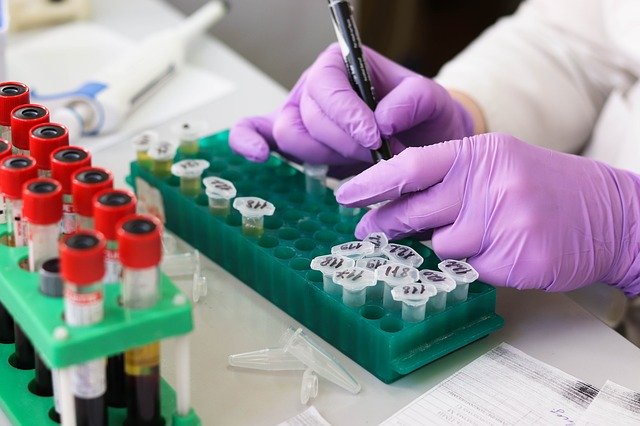Alexion Pharmaceuticals announced that Japan’s Ministry of Health, Labour and Welfare (MHLW) has approved the extension of the current marketing authorization of SOLIRIS (eculizumab) to include the prevention of relapse in patients with anti-aquaporin-4 (AQP4) antibody-positive neuromyelitis optica spectrum disorder (NMOSD), including neuromyelitis optica.

SOLIRIS receives approval in Japan for the prevention of relapse in patients with neuromyelitis optica spectrum disorder. Photo: courtesy of Belova59 from Pixabay.
Subscribe to our email newsletter
“We are pleased that the Japanese health authorities have approved SOLIRIS as a new treatment for patients suffering from this complex and unpredictable disease,” said John Orloff, M.D., Executive Vice President and Head of Research and Development at Alexion. “Nearly all patients treated with SOLIRIS were relapse free at 48 weeks in the Phase 3 PREVENT study, providing new hope for Japanese patients with NMOSD and their clinicians.”
NMOSD is a rare, devastating, complement-mediated disorder of the central nervous system characterized by relapses, also referred to as attacks. Each attack can result in stepwise accumulation of disability, including blindness and paralysis and sometimes premature death. NMOSD disproportionately strikes young women in the prime of their lives, with the average age of first onset at just 39 years. Previously known as Devic’s Disease, NMOSD is often confused with other neurological illnesses such as multiple sclerosis (MS), which can lead to delays in diagnosis and treatment with medicines that can worsen disease progression.
“The understanding of NMOSD has rapidly evolved in recent years since complement activation by AQP4 antibodies was identified as an underlying cause of the disease,” said Kazuo Fujihara, Professor, Fukushima Medical University, Director of the Multiple Sclerosis & Neuromyelitis Optica Center at Southern Tohoku Research Institute and a principal investigator in the PREVENT trial of SOLIRIS in anti-AQP4 antibody-positive NMOSD. “With the first approved medicine for NMOSD in Japan, SOLIRIS will provide highly effective treatment to prevent future relapses in these patients.”
The approval of SOLIRIS was based on comprehensive results from the Phase 3 randomized, double-blind placebo controlled PREVENT trial, which were published in The New England Journal of Medicine and a long-term extension study (ECU-NMO-302), which is still underway. In the PREVENT study, patients with NMOSD who were anti-AQP4 antibody-positive were treated with SOLIRIS (n=96) or placebo (n=47). The study met its primary endpoint of prolonging the time to first adjudicated relapse and reducing the risk of relapse. At 48 weeks, 98 percent of patients treated with SOLIRIS were relapse free compared to 63 percent of patients receiving placebo. Of the approximately one quarter of patients treated solely with SOLIRIS monotherapy, without receiving other immunosuppressive therapies, 100 percent were relapse free at 48 weeks compared to 61 percent in the placebo group. Sustained effects of SOLIRIS were observed through 144 weeks of treatment.
The safety profile of SOLIRIS was consistent with that seen for SOLIRIS in other clinical studies and real-world use in its three approved indications. The most common adverse events observed in the PREVENT study were upper respiratory tract infection (29 percent of patients in the SOLIRIS group vs. 13 percent in the placebo group), headache (23 vs. 23 percent), nasopharyngitis (21 vs. 19 percent) and nausea (17 vs. 26 percent). The serious adverse events that were reported for more than one patient in either group were pneumonia (three patients in the SOLIRIS group vs. one patient in the placebo group) and cellulitis, sepsis and urinary tract infection (two patients for each event in the SOLIRIS group vs. no patient in the placebo group). One patient receiving SOLIRIS and concomitant supportive IST died from a pulmonary empyema. The patient had an extensive history of pulmonary disease and was an active smoker. No cases of meningococcal infection were observed in the study.
SOLIRIS was approved for the treatment of NMOSD in adult patients who are anti-AQP4 antibody-positive by the U.S. Food and Drug Administration (FDA) in June 2019 and by the European Commission (EC) in August 2019. SOLIRIS received Orphan Drug Designation (ODD) for the treatment of NMOSD in the U.S., EU and Japan.
Source: Company Press Release
 Advertise With UsAdvertise on our extensive network of industry websites and newsletters.
Advertise With UsAdvertise on our extensive network of industry websites and newsletters.
 Get the PBR newsletterSign up to our free email to get all the latest PBR
news.
Get the PBR newsletterSign up to our free email to get all the latest PBR
news.

